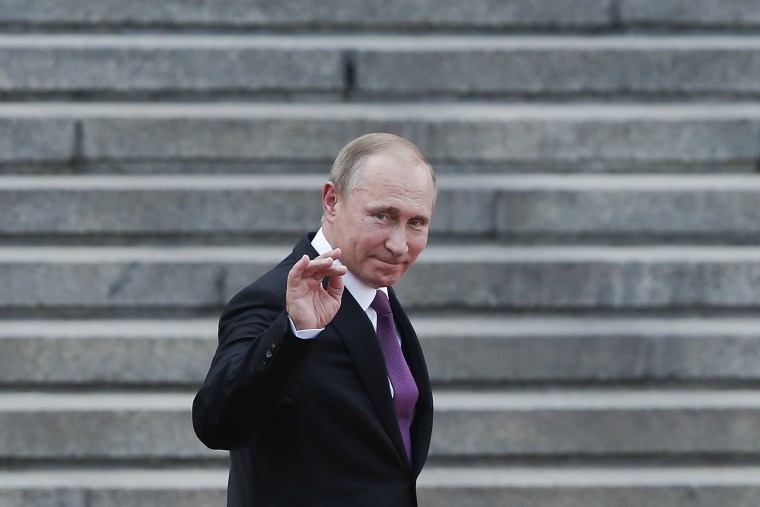Ex-leaders, politicians and pro-democracy advocates from across Central and Eastern Europe have implored U.S. President-elect Donald Trump to stand behind Ukraine in its struggle against Russia's annexation of Crimea and support for separatists in eastern Ukraine.

"Vladimir Putin is not America's ally," 17 current and former heads of state and foreign ministers wrote in an open letter to Trump dated Monday. "Neither is he a trustworthy international partner."
The Obama administration issued a new round of sanctions last month targeting Russian officials and businesses connected to the Crimean takeover and support for separatists. Because those and earlier sanctions were issued by executive order, Trump could choose to revoke them when he takes office next week.
Related: Trump on Russia Sanctions: 'We Ought to Get on With Our Lives'
"It would be a grave mistake to end the current sanctions on Russia or accept the division and subjugation of Ukraine," the European leaders wrote, warning that to do so would demoralize America's allies in the region and destabilize their economies.
In the broader picture, they wrote, "the aftershocks of such a deal would shake American credibility with allies in Europe and elsewhere."
Trump has frequently praised Putin's leadership, and his nominee for secretary of state, former ExxonMobil Chief Executive Rex Tillerson, has expressed opposition to sanctions on Russia, where ExxonMobil has business ties.
The letter is similar to one that was sent to Barack Obama shortly after he took office in January 2009, which expressed concern that "Central and Eastern European countries are no longer at the heart of American foreign policy."
"Russia is back as a revisionist power pursuing a 19th-century agenda with 21st-century tactics and methods," that letter said.
Five of the leaders signed both letters:
- Istvan Gyarmati, chief executive of the International Center for Democratic Transition, a Hungarian pro-democracy nonprofit
- Karel Schwarzenberg, chairman of the Foreign Affairs Committee of the Czech Republic's Chamber of Deputies
- Janusz Onyszkiewicz of Poland, former vice president of the European Parliament's Foreign Affairs Committee
- Former Latvian President Vaira Vike-Freiberga
- Alexandr Vondra, former foreign minister of the Czech Republic.
